The day a young actress on the verge of becoming a big star was killed in cold blood: 'The world just seemed physically wrong'
Rebecca Schaeffer was shot to death by a male fan in July 1989.
In July 1989, actress Rebecca Schaeffer was on the verge of becoming a big star.
Her celebrity status had taken off with the sitcom "My Sister Sam" and she was preparing to audition in front of Francis Ford Coppola for a once-in-a-lifetime role in "The Godfather Part III."
She was 21 years old and living in Los Angeles with a bright career ahead of her.
"She was busy living her life, meeting people and having friends. ... She had a boyfriend," said Pam Dawber, who acted opposite her on "My Sister Sam" and had costarred in "Mork and Mindy" with Robin Williams.
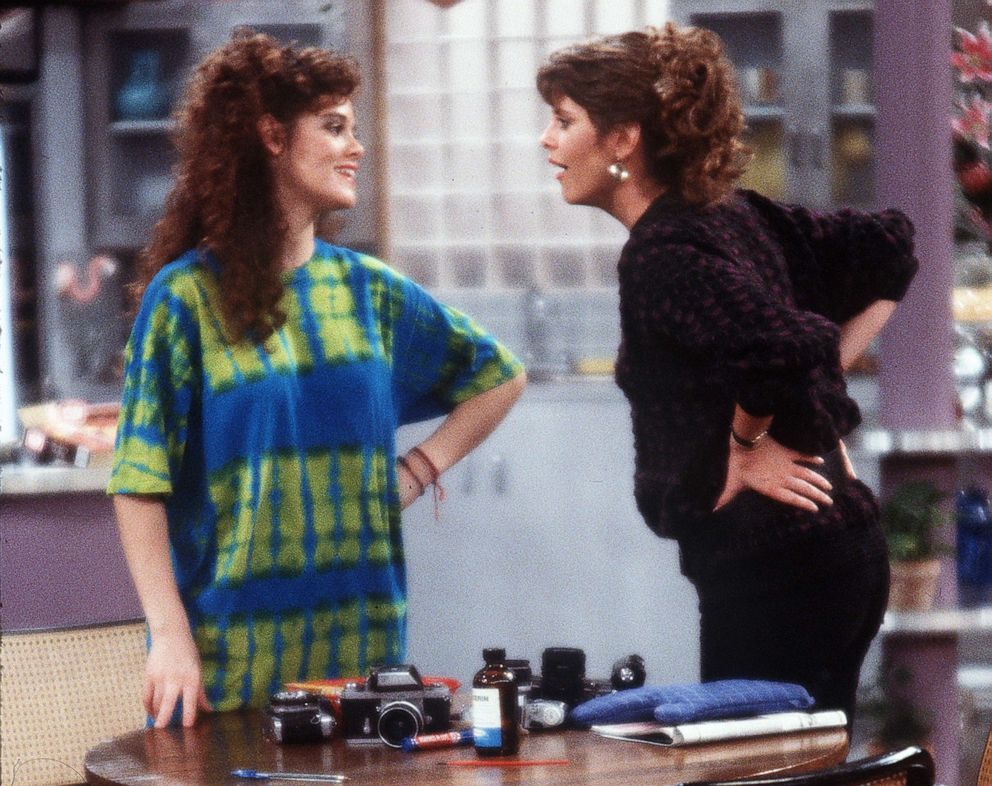
But Schaeffer's life was tragically cut short when Robert Bardo, an obsessed fan who had stalked her, traveled nearly 500 miles and killed her.
Watch the full story on "20/20" THIS FRIDAY, April 12, at 9 p.m. on ABC.
"She was a unique young woman. She was beautiful. She was funny. ... She would've been a remarkable actress," said Jenny O'Hara, who also starred in "My Sister Sam."
Rebecca Schaeffer is drawn to drama
Schaeffer was born in 1967 in Oregon to child psychologist Benson Schaeffer and writer Danna Schaeffer.
She was a unique young woman. She was beautiful. She was funny. ... She would've been a remarkable actress.
"We were very lucky as a family," said her father Benson Schaeffer. "She was sort of a mystery because if she wanted to do something, she could do it. ... She really sort of learned by looking and doing and it was easy."
She spent her childhood years in Eugene before the family moved to Portland when she was in high school.
"She was interested in drama," Benson Schaeffer said. "She was always in the center of the popular group. ... She really wanted to be an actress. ... When she was 14 ... someone said, 'You really ought to be modeling.'"
Schaeffer began her career as a teen model at the age of 14 and later moved to New York City when she was 16 for more opportunities.
"I knew I wanted to sign this little girl so bad," Nannette Troutman, Schaeffer's first agent, said. "She was just a very, very special young lady."
Benson Schaeffer said his daughter's time in New York City was an "extremely happy" one for her.
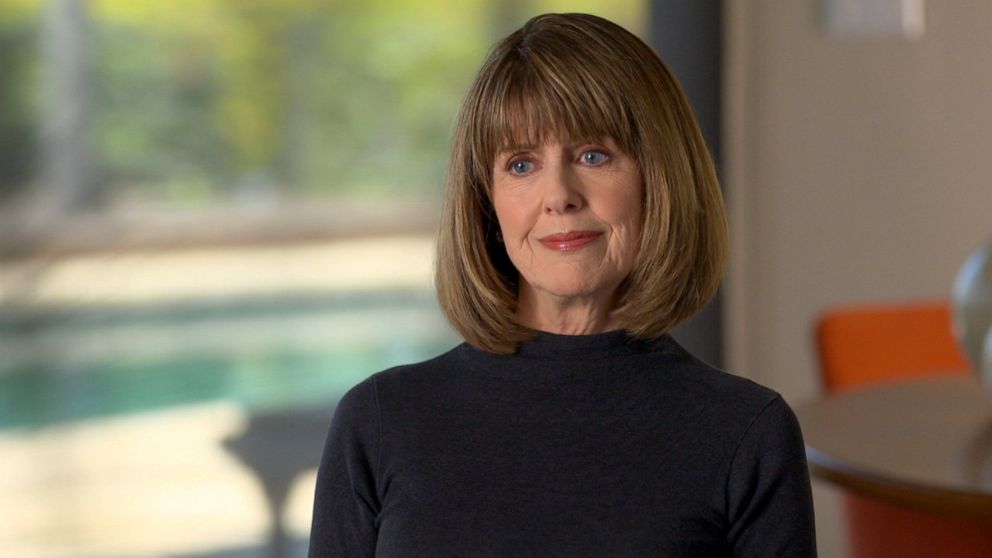
In New York, Schaeffer did some modeling and went on auditions, eventually landing a recurring role on the popular ABC soap opera "One Life to Live." Erika Slezak, who played the character of Victoria Lord on the daytime drama for more than 40 years, said she'd worked with Schaeffer, 17 at the time, in 1984.
"She was remarkably good for somebody at that age. She had a certain, a presence and a confidence that exudes on the screen," she said.
(MORE: Taylor Swift's alleged stalker appears in court)
In 1986, however, Schaeffer headed back to the West Coast after getting a call to play opposite Dawber as her kid sister Patti in the TV sitcom "My Sister Sam."
Dawber, who had previously costarred in the sitcom “Mork and Mindy” about an alien and his human girlfriend, said that Schaeffer was "the one" for the part.
"She was just right. She looked like she could be my sister and she was good," Dawber said. "It was like, 'Oh, we found her. We found her.' It was just, you know, a great moment."
"My Sister Sam" was a hit in its first season. Schaeffer got the cover on Seventeen magazine and then she and Dawber appeared together on the cover of TV Guide, which at the time was the No. 1 magazine in the U.S. with 40 million weekly readers. Her friends said that the attention didn't seem to faze her though.
"It was just like another day," said Rebecca’s close friend Barbara Lusch. "[It] did not go to her head at all. ... I remember when she did the shoot -- and she said it was fun -- and that was it. But again, she didn't make a big deal about it."
As Schaeffer became more of a star, she started a relationship with film student Brad Silberling whom she'd met on a blind date. Silberling went on to become a successful Hollywood director.
"It got very serious. To the point where it scared the hell out of us. I was 23. She was 19," he said. "She didn't perceive herself as a celebrity. She didn't live that way."
She didn't perceive herself as a celebrity. She didn't live that way.
"She was wise beyond her years but she was naive in some ways because she was very trusting," said former agent Troutman. "She had such an open heart."
'My Sister Sam' is canceled
In the second season of "My Sister Sam," the show was moved to a different time slot and ratings plummeted. The show was canceled. After "My Sister Sam," Schaeffer appeared in several movies including "The End of Innocence," written and directed by Dyan Cannon.
"This bright, little light walks in the room and [said] 'Hi, I'm Rebecca,'" Cannon said. "It was just an immediate connection. ... You don't have that with everybody. That's a rare thing but she was rare."
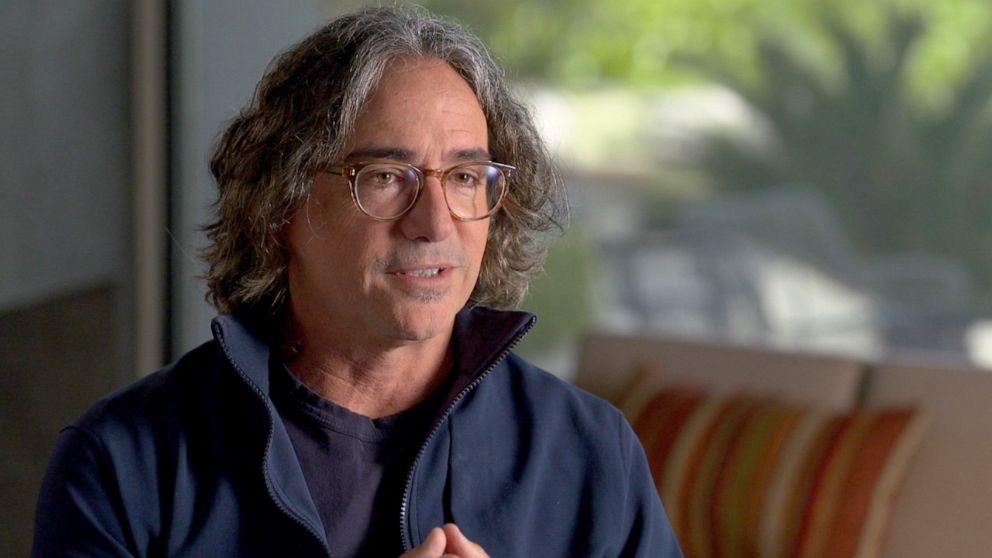
In the summer of 1989, Coppola was working on making “The Godfather Part III,” the final installment in the franchise that made him famous.
Every young actress in Hollywood wanted the role of Mary, the daughter of Al Pacino’s lead character Michael Corleone and Schaeffer was going for it.
"I remember the last time I spoke to Rebecca," said Hollywood agent Jonathan Howard. "It was about 'The Godfather III' audition. ... How important it was, how excited she was, and you don't think whenever you talk to somebody that it's going to be the last time."
Her father, Benson, said he last spoke to her when she called a day or two before the audition.
"She had been invited to go… on a set," he said. "[I said] 'Why don't you give me a ring afterwards and tell me how it went.' And she said, 'Well I'll do that. I love you.' And I said, 'I love you.' And that was the [last] conversation."
The Schaeffer family's life is changed forever
As Schaeffer's star was continuing to rise, Bardo, 19, of Tucson, Arizona, had become enamored with Schaeffer because of her role on "My Sister Sam." He'd written fan letters to Schaeffer and she'd even responded to one of them, saying, "Yours was one of the nicest I got."
"Robert Bardo was a troubled young man. ... There was a history of a troubled childhood. He had threatened neighbors and schoolmates," said Jeff Dunn, a retired police detective from Los Angeles Police Department.
In the summer of 1987, he'd traveled to California, carrying a teddy bear and flowers, and tried to see her at the Warner Bros. studio but had been turned away by the security guard, according to Rhonda Saunders, formerly with the Los Angeles District Attorney's Office.
After "My Sister Sam," Schaeffer had scored a big part in a movie called "Scenes from the Class Struggle in Beverly Hills." The movie contained a love scene that Schaeffer appeared in -- a break from her character in "My Sister Sam" -- and it flicked some sort of evil switch inside Bardo.
"All those rageful feelings. ... 'How dare she? She's mine. ... She's supposed to stay innocent for me.' That gets ... converted into a plan of cold-blooded revenge," said Dr. Kris Mohandie, a clinical police and forensic psychologist. "I’m going to punish you and permanently possess you by taking your life."
In July 1989, he walked into a gun store in Tucson and tried to purchase a firearm but was turned away.
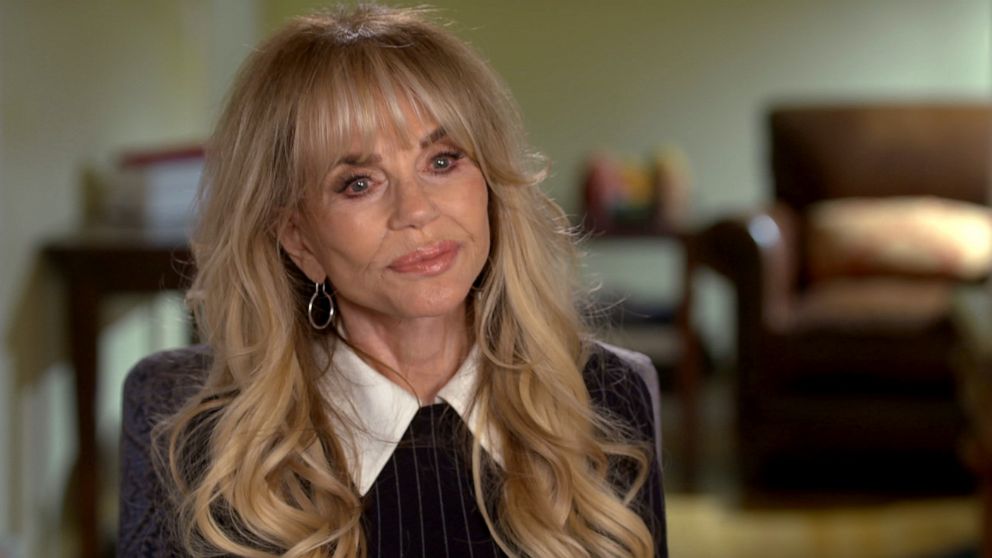
"To the credit of the gun store owner he noticed that something was wrong with Mr. Bardo and he asked some probing questions," Dunn said.
According to Dunn, Bardo revealed to the gun-store owner he had a history of mental illness.
"So the gun store owner realized… that he is a prohibited possessor and not legally able to purchase firearms, so he wouldn't sell him a gun," Dunn said.
According to police, Bardo then persuaded his brother Edward to go to the store and purchase a handgun for him.
"His brother didn't know what was going on in his mind, that he was fixated on Rebecca Schaeffer," Saunders said. "He just thought, 'Oh, he wants a gun, he'll do some target shooting.' And… told Robert, 'OK, I'll get you the gun, but you can't use it unless I'm with you.'"
Bardo’s brother then proceeded to purchase an automatic weapon.
"He (Bardo) hires a private investigator to get [Schaeffer’s] home address," who obtained it from state Department of Motor Vehicles, Saunders said.
According to authorities, Bardo boarded a Greyhound bus from Tucson to Los Angeles with his bag and the gun. He arrived in Los Angeles around 5 a.m. on July 18, 1989. That morning, as Schaeffer was waiting in her apartment for a courier to deliver “The Godfather Part III” script, Bardo rang her doorbell. He was carrying with him a bag that contained the card that she'd sent him, her photograph and "The Catcher in the Rye," which Mark David Chapman carried when he shot John Lennon.
People walked around saying, 'How can this happen?' 'How could you just walk up to somebody's house and shoot them?'
"Her intercom system did not work so she had to physically go to the front door and open it," Dunn said.
"[He] showed her the autographed photo that he had received in the mail," Dunn said. "She politely excused herself, told Mr. Bardo that she had to get ready for an interview."
He then went to a diner to eat something and returned to Schaeffer's home, ringing the doorbell again. When she came down to answer and opened the door, Bardo claims she told him he was wasting her time, which he says set him off.
"Mr. Bardo stated, 'I forgot to give you something.' Withdrew a handgun from his waistband and shot her once in the chest, penetrating her heart," Dunn said.
Hollywood is stunned
A neighbor who heard the gun shot and Schaeffer’s sobs called an ambulance and the actress was rushed to the hospital, where she died. Howard called Schaeffer’s mother to tell her that the young actress had been killed.
“It was the hardest thing I'd ever had to do… even 30 years later,” Howard said.
Her friends in Hollywood said everyone was shocked at the news of her killing.
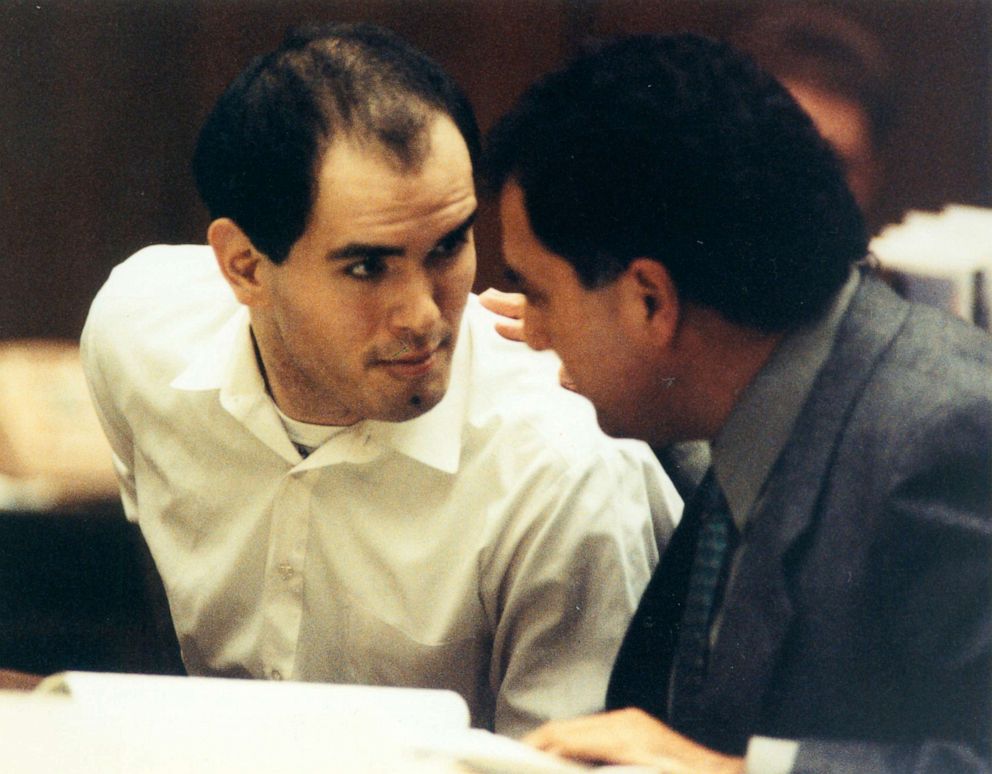
"We were just horrified. People walked around saying, 'How can this happen?' 'How could you just walk up to somebody's house and shoot them?'" Slezak said.
"When I found out how Rebecca was murdered ... I was staggered because I don't think at that time we thought about stalking so much," Cannon said. "'This guy followed her? This guy went to her condo and she opened the door and he shot her and killed her and she's dead?' ... In that time was unthinkable."
Authorities launched an air and ground search near Schaeffer's apartment looking for the person responsible for her murder as Bardo made his way back to Tucson. One day after he shot Schaeffer, Bardo was seen running down the freeway screaming, "I killed Rebecca Schaeffer," according to police.
"We secured him right away. Did a little, quick patdown and search on him, found a picture of Rebecca Schaeffer in his shirt pocket," said Paul Hallums, the Tucson officer who arrested Bardo. "He was disheveled-looking. His clothes were dirty. His hair was a mess. It looked like he hadn't slept all night. We started putting two and two together."
Schaeffer's funeral was held in Portland, Oregon. Troutman said it was standing-room only and some people even stood outside the synagogue as well.
“I was still in a state of … personally, in a state of unreality,” her father said. “The world just seemed physically wrong.”
Bardo was extradited back to California. Two years after Schaeffer's slaying, he went to trial and was found guilty by a judge of first degree murder. In December 1991, he was sentenced to life in prison without the possibility of parole.
Her murder prompted the state of California to pass the first anti-stalking law in 1990. Today, all 50 states have such laws.
"What the world really lost was an angel," Howard said. "I lost a friend. ... Hollywood lost a rising star, and the world lost an angel."






